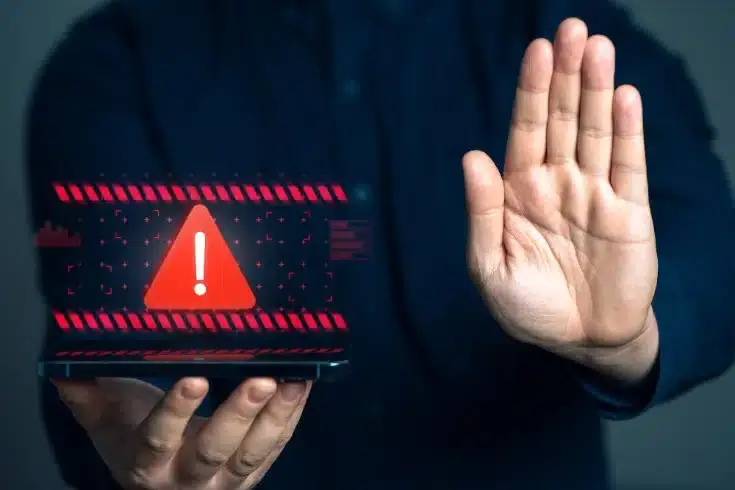Acquisition and Business Transfer of Virtual YouTubers・VTubers

Virtual YouTubers, or VTubers, just like websites and smartphone apps, can be considered as business assets that hold financial value and can be subject to “business transfers” and “acquisitions”.
For instance, the “business transfer” or “acquisition” of a website often occurs for reasons such as, “Considering the time it takes to create owned media and increase access from zero, it’s faster to buy a media that already has a certain amount of access.” The “business transfer” or “acquisition” of Virtual YouTubers or VTubers is similar. Considering the time it takes to increase the number of channel subscribers from zero, it’s faster to buy a Virtual YouTuber or VTuber that already has a certain number of channel subscribers.
What is the Structure of “Acquisition”
So far, we have been discussing “business transfer” and “acquisition”. Let’s first clarify these terms.
“Business transfer” is a structure where an individual or corporation sells a “business” (we will explain the meaning of this term later) that they own. On the other hand, “acquisition” is a broader concept in everyday language. It could mean “purchasing something like a Virtual YouTuber or VTuber using some kind of structure”.
Purchasing All Shares of a Company is Also Possible
Another structure of “acquisition” other than “business transfer” could be, for example, purchasing all the shares of the other party’s company. If the owner of the Virtual YouTuber or VTuber is a company, not an individual, and if that company does not have any other business besides the said Virtual YouTuber or VTuber, there is not much difference between buying the Virtual YouTuber or VTuber itself (business transfer) and buying the entire company (purchasing all shares). Furthermore, in this case, it is more convenient to buy the entire company as it can bypass many of the problems specific to business transfers, as will be discussed later.
In the Case of Virtual YouTubers or VTubers, Business Transfers are Common
However, in most cases, the owner of the Virtual YouTuber or VTuber that is the target of the acquisition is either an individual or a company that has other businesses. In the case of an individual, you cannot “buy the individual’s shares” in the first place, and in the case of a company with other businesses, you can only choose a business transfer. Therefore, in conclusion, the structure that can be chosen for the acquisition of a Virtual YouTuber or VTuber is often a business transfer.
What Constitutes a Virtual YouTuber, or VTuber
A “business transfer” is a structure that involves the sale and purchase of a consolidated business, often referred to as an “organic whole”. While buying a single item like a PC is a simple transaction, the purchase of a Virtual YouTuber or VTuber involves acquiring a multitude of components, such as:
- The complete modeling data of the VTuber in question
- The full set of filming equipment used by the VTuber
- All intellectual property rights, including copyrights, related to the VTuber
- All intellectual property rights, including copyrights, related to past videos
- The account for video streaming services like YouTube
- If the VTuber has a website, the server account, the entire website, and all related intellectual property rights
- If the VTuber has a Twitter account or similar, the account and all related intellectual property rights
Without any of these components, the purchase would not constitute a complete acquisition of the VTuber. In this sense, these assets form an “organic whole”, and buying them is not a simple transaction, but a business transfer.
However, there is a question as to what exactly is meant by “copyrights related to a Virtual YouTuber or VTuber”. To put it simply, abstract character settings, features, and characters are not protected by copyright.
“Business Transfer” Requires a List of Purchased Items
However, a business transfer, especially from the buyer’s perspective, is not much different from a regular sales contract. What this means is that what is being purchased is not vaguely “the entire Virtual YouTuber/VTuber package,” but rather “individual assets listed in the contract.” In other words, if you forget to list a specific item you thought you would be buying, such as “the trademark rights of the Virtual YouTuber/VTuber,” in the contract, that item will be excluded from the purchase. Therefore, it is necessary to carefully list all the items that make up the “organic whole” of the Virtual YouTuber/VTuber that you want.
Listing Transfer Items Requires Specialized Knowledge
This listing process is quite specialized.
Firstly, those with IT knowledge alone may overlook things from a legal perspective. The aforementioned trademark rights are a typical example. If you overlook this, you may find yourself being told one day, “By the way, if you continue to use that name, please pay a license fee,” even though you thought you had transferred all rights and continued to operate the channel.
Conversely, those with legal knowledge alone may overlook things from an IT perspective. For example, if the Virtual YouTuber/VTuber operates on a system that assumes motion capture with specialized equipment, overlooking the need to transfer all of that equipment could make it impossible to shoot new videos.
However, these issues are not limited to Virtual YouTubers/VTubers. They could also arise in the case of a website business transfer. It’s a similar issue to needing to purchase the official Twitter account of a popular website with high traffic.
D&D and Warranty Clauses are Also Necessary
Also, this is not limited to Virtual YouTubers or VTubers, but it is very important to conduct a “D&D” to ensure that there are no issues with contracts that have been signed in the past regarding the Virtual YouTuber/VTuber business, and to include warranty clauses that guarantee there are no issues.
The Unique Issue of VTubers: Their Relationship with Voice Actors

Furthermore, Virtual YouTubers, or VTubers, face unique issues that do not exist in cases of website business transfers. One such issue is their relationship with voice actors.
At least for now, VTubers are closely tied to specific voice actors. If the voice changes before and after a business transfer, there is a risk of losing fans, so it is necessary to continue working with the same voice actor. This is not much of a problem in the case of website business transfers. For example, even if the writers of a women’s beauty media website completely change before and after a business transfer, most readers probably wouldn’t notice. In contrast, if a VTuber’s voice actor changes, many viewers would feel uncomfortable.
Issues Arising from the Operator and Voice Actor Being Different Individuals
Currently, many VTubers are operated by individuals different from their voice actors. Therefore, during a business transfer, it is necessary to:
- Conclude a business transfer agreement with the former operator and receive the transfer of all modeling data, etc.
- Conclude a new performance contract (talent contract, etc.) with the voice actor
This is the form that needs to be adopted.
Need to Design to Enable Talent Contracts with Voice Actors
The contractual relationship between the “former operator” and the “voice actor” does not naturally carry over just because a business transfer has taken place. The “voice actor” has the freedom to not enter into a performance contract (talent contract, etc.) with the new operator. If the voice actor refuses to contract, it becomes a serious problem. Therefore, in the aforementioned business transfer agreement, it is necessary to set clauses with the following content:
- The company that is buying the business and becoming the new operator must cooperate with the former operator in concluding a talent contract with the voice actor
- If the talent contract is not established by a certain date, this business transfer agreement will be cancelled and the full amount of the business transfer fee will be refunded
Such clauses need to be set.
It’s Difficult to Implement a ‘Lock-Up’ for Voice Actors
This issue seems to fundamentally stem from a discrepancy between:
- People who perform personal services: voice actors
- People who benefit significantly from the business transfer: the former operators of the respective Virtual YouTuber/VTuber
In Company Acquisitions, ‘Lock-Up Clauses’ are Common
For instance, in the case of a company acquisition:
- People who perform personal services: Even if employees change, the president must continue to work as usual for a while after the acquisition, gradually letting go of management tasks → The president of the company
- People who benefit significantly from the business transfer: Those who hold the majority of the company’s shares → The president, who is also the founder of the company
In such cases, there is often no discrepancy. Therefore, it can be said that in the case of a company acquisition, it is common to implement a so-called ‘lock-up’ for the president. This is a ‘lock-up clause’, which essentially says, “Since a large sum of money will be received from this acquisition, we want you to continue as president for the next three years.”
It’s Difficult to Implement a Lock-Up for Virtual YouTuber/VTuber Voice Actors
However, in the case of Virtual YouTubers/VTubers, whether it’s good or bad, the business transfer discussions are primarily held with the former operators, and the consideration is often paid in full (or almost in full) to the former operators. On the other hand, voice actors often do not benefit from the business transfer. From the perspective of the voice actors, it may simply feel ‘unfair’, and there may also be potential dissatisfaction that “despite the inevitable disruption to smooth operations due to the change in management, the compensation remains the same”.
The Need for Flexible Design to Prevent Problems
It is crucial to consider how to keep voice actors, who perform highly individualized tasks, working after a business transfer. For example, you might consider:
- Increasing their compensation
- Offering an exclusive contract, assuming an increase in compensation (the voice actor cannot work for any other Virtual YouTuber/VTuber, and must obtain permission to work elsewhere)
- Entrusting the management of the voice actors to the former operator, and paying a portion of the planned “consideration for the business transfer” as a management fee (with a structure that allows for stopping payment if the voice actor quits)
These options should be considered on a case-by-case basis.
Since there is probably no single “correct” answer to this issue, it seems that it should be individually designed from an IT and legal perspective, taking into account various factors such as the characteristics of the Virtual YouTuber/VTuber business, industry customs and market perceptions, human relationships in the case at hand, and the free cash of the acquiring company.
Therefore, when transferring a Virtual YouTuber/VTuber business, it is advisable to consult with a lawyer who has extensive knowledge and experience in business, IT, and so-called M&A.
Introduction to Our Firm’s Measures
Monolith Law Office is a legal office with high expertise in both IT, particularly the Internet, and law. Nowadays, even among increasingly popular YouTubers and VTubers, there are legal risks. Especially when it comes to money-related matters such as channel transfers, it can potentially become a major issue in the future. Our firm also handles legal support for YouTubers and VTubers.
Category: Internet





















